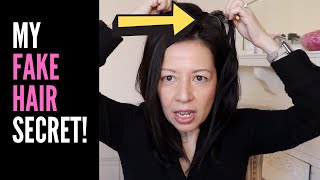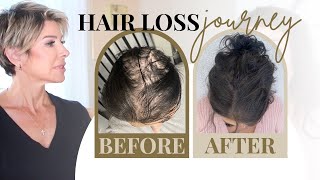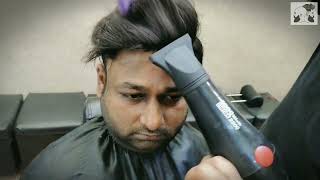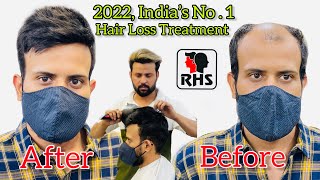The Link Between High Protein Diet & Hair Loss
- Posted on 17 June, 2021
- Hot Topic
- By SNY Admin
As far as I can see, there are two main causes of hair loss; dietary causes and genetic causes or what you might call hereditary causes, such as autoimmune diseases, hormonal fluctuations, thyroid disease, and the medical treatment associated with it.
Hereditary causes are plain and simple to understand, but dietary causes can be tricky. The deficiency of almost any vitamins and minerals may cause hair loss and its excesses either. You may end up questioning if consuming a high amount of protein and hair loss related or does potassium help with hair loss? So, a balancing act will be required on your part.
How Losing Hair Is Connected to High Protein Diets
Can a high protein diet cause hair loss? Yes, eating adequate protein is important for hair growth because hair follicles are made of mostly protein. If your body does not have sufficient fuel, then your hair follicles might be among the first organs to shut down to conserve energy.
A lack of protein in the diet has been shown to promote hair loss. Biotin is essential for the production of a hair protein called keratin, which is why biotin supplements are often marketed for hair growth. By this time, the deficiency may have already affected your hair health.
Moreso, if you’re eating a high protein diet, you may have cut out or drastically limited your intake of foods like carbohydrates. Thinning hair carbohydrates have a lot of calories, which your body, including your hair follicles, uses for fuel.
With low carbohydrate diets, the human body no longer has its own favorite source of energy and turns to stored fat. Extreme low carbohydrate diets, fad diets, extremely high protein diets, excessively low-fat diets, or vegetarian/vegan diets that are not careful about a complete amino acid profile can cause hair loss.
When low carbohydrate intake reduces your caloric consumption to a very low amount, your liver converts fatty acids and ketones to energy, developing a condition of ketosis which leads to biotin deficiency that can cause hair loss in some people.
When you deprive your body of certain foods, it can cause nutritional deficiencies that may lead to hair loss. Any disruption of these requirements can have a detrimental effect on the delicate physiologic conditions needed to support healthy hair growth.
If you have recently begun an increased protein intake and have hair loss, it is a great idea to speak with your physician, which may also order blood tests to rule out other health problems.
The Way Losing Hair Is Linked to Top Protein Diets
A high protein diet itself causes hair loss and the lack of causes hair loss, as well. Hair loss may occasionally be caused by a lack of protein in the diet. Some people who go on crash diets that exclude protein or who have abnormal eating habits may develop protein malnutrition. When this happens, the body will help save protein by shifting growing hairs into the resting phase.
But it goes the other way, consuming of high protein diet can lead to protein build-up.
Know the signs of Protein Buildup:
- Your hair snaps off more easily.
- Your hair feels straw-like and stiff.
- Your hair is unusually dry, lifeless, and brittle.
- It no longer has the natural shine/luster that it used to have.
- More tangles and strands that look “angry”.
High protein diets might be a terrific way to shed weight and burn off fat. However, they could take a toll on the body, and sometimes even result in hair loss.
Restrictive Diets & Hair Loss
Like crash diets, restrictive diets that cut out entire food groups can cause hair loss due to nutrient deficiency or stress. Deficiencies in iron, zinc, protein, selenium, and essential fatty acids have all been linked to hair loss.
How to prevent hair loss when on a restrictive diet:
- Lose Weight Slowly. When your body undergoes major changes, such as sudden weight loss, it reacts in myriad ways.
- Get Your Protein and Iron. Protein-rich foods that are also high in iron are vital to a healthy body, especially when losing weight. But be careful to overdo it.
- Don’t Overdo Your Vitamin A.
The strain of restrictive diets may prematurely push your entire own hair follicles to the resting (telogen) phase of the hair growth cycle. Hair has a programmed life cycle: a growth phase, rest phase, and shedding phase.
For example, sudden weight loss and restrictive diets have been linked to a condition known as acute telogen effluvium (TE), the clinical name for temporary hair loss, one of the most common causes of widespread hair loss on the scalp. Typically, TE occurs around 3 months after a triggering event like rapid weight loss and lasts about 6 months.
Other Reasons for Hair Loss
Other causes of hair loss and thinning hair besides dietary are genetic and one occurs in medical conditions brought about by the medicine itself and hair loss occurs because the skin becomes scarred and damaged.
Here are other causes of hair loss:
- Hereditary hair loss or androgenetic alopecia. Both men and women develop this type of hair loss, which is the most common cause of hair loss worldwide.
- Age.
- Alopecia areata.
- Childbirth, illness, or other stressors.
- Haircare.
- Hairstyle pulls on your scalp.
- Hormonal imbalance.
Other triggers include prescriptions such as blood thinners, birth control pills, steroids, antidepressants, and weight loss drugs.
Nutritional deficiency is the major cause of hair loss in women especially under the age of 35. If you have brittle hair, chances are that you have zinc and iron deficiency. Advertisement iron deficiency is more common in women of childbearing age than men and postmenopausal women. If you want to enhance iron absorption take vitamin C.
Hair loss can also be due to medications used to treat the condition:
- cancer.
- high blood pressure.
- arthritis.
- depression.
- heart problems.
What You Can Do About Hair Loss
Currently, there’s no cure for male pattern baldness. However, medications like finasteride and minoxidil can help you keep the hair you have and, in some cases, potentially regrow some of the hair you’ve lost due to genetic male pattern balding or thinning hair and prevent hair fall.
Here are some treatment tips to make your crowning glory thicker or help follicles grow hair back more consistently. To prevent and reverse hair loss, foods rich in vitamins are recommended.
- Scalp massage. Perhaps the cheapest method of getting thicker hair is a scalp massage.
- Essential oils.
- Anti-thinning shampoo.
- Multivitamins.
- Folic acid supplements.
- Biotin.
- Omega-3 and omega-6 fatty acids.
- Minoxidil.
If your body isn’t getting all the nutrients it needs to function properly, neither is your hair. But once you restart a balanced diet, your hair follicles will normally return to normal and the excess shedding will discontinue. It’s is not just about a healthy diet, your hair cells require proteins, complex carbohydrates, and iron to grow and function.
In one study, people with hair loss experienced 34.5% more hair growth after taking a vitamin E supplement for eight months. This type of diet may still be an option for you, but you should ask your medical provider about adding nutritional supplements.
If you don’t eat meat like vegetarians who eat dairy, we recommend eating egg white omelets, cottage cheese, and Greek yogurt along with high protein legumes, nuts, and seeds as an easy way to boost protein intake. For strict vegans, we recommend a plant-based diet that includes a variety of high protein legumes, seeds, nuts, and vegetables; minimizing starchy vegetables, bread, and pasta.
Folate is the single most important thing for your diet to reverse hair loss. Natural forms of folate are beans and green leafy vegetables.
The Bottom Line
The good news is no matter how much hair you’ve lost, there are solutions out there. Hair loss from a sudden decline in body weight is not permanent. There are several ways to resume healthy hair growth. People who lose weight often restrict their calorie consumption.
To give you an example, hair loss after gastric bypass surgery or a rapid nonsurgical weight loss typically occurs within the first three to six months after surgery or significant weight loss. As the body adjusts to the changes, the hair loss will stop. Any lost hair will grow back.




